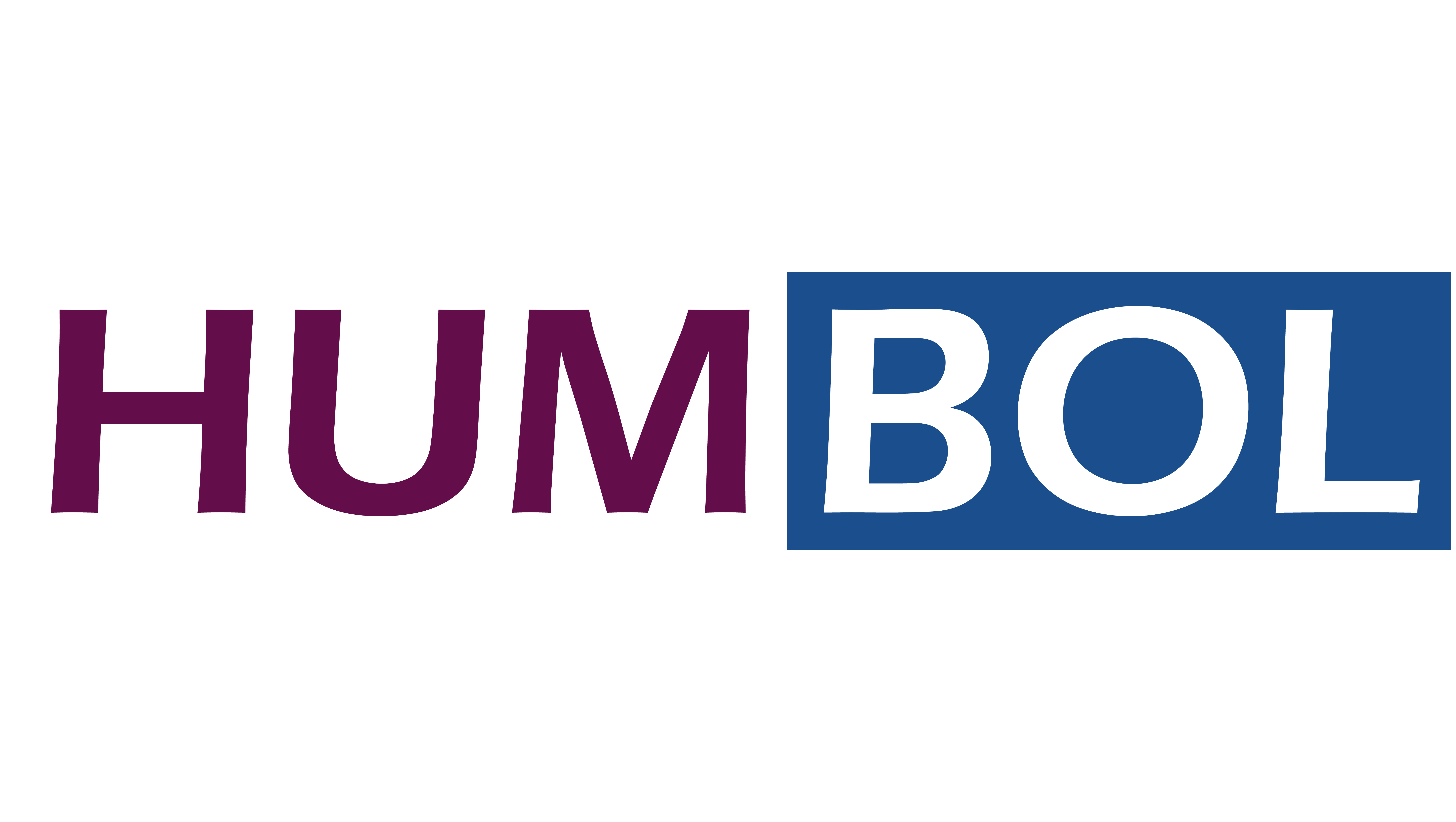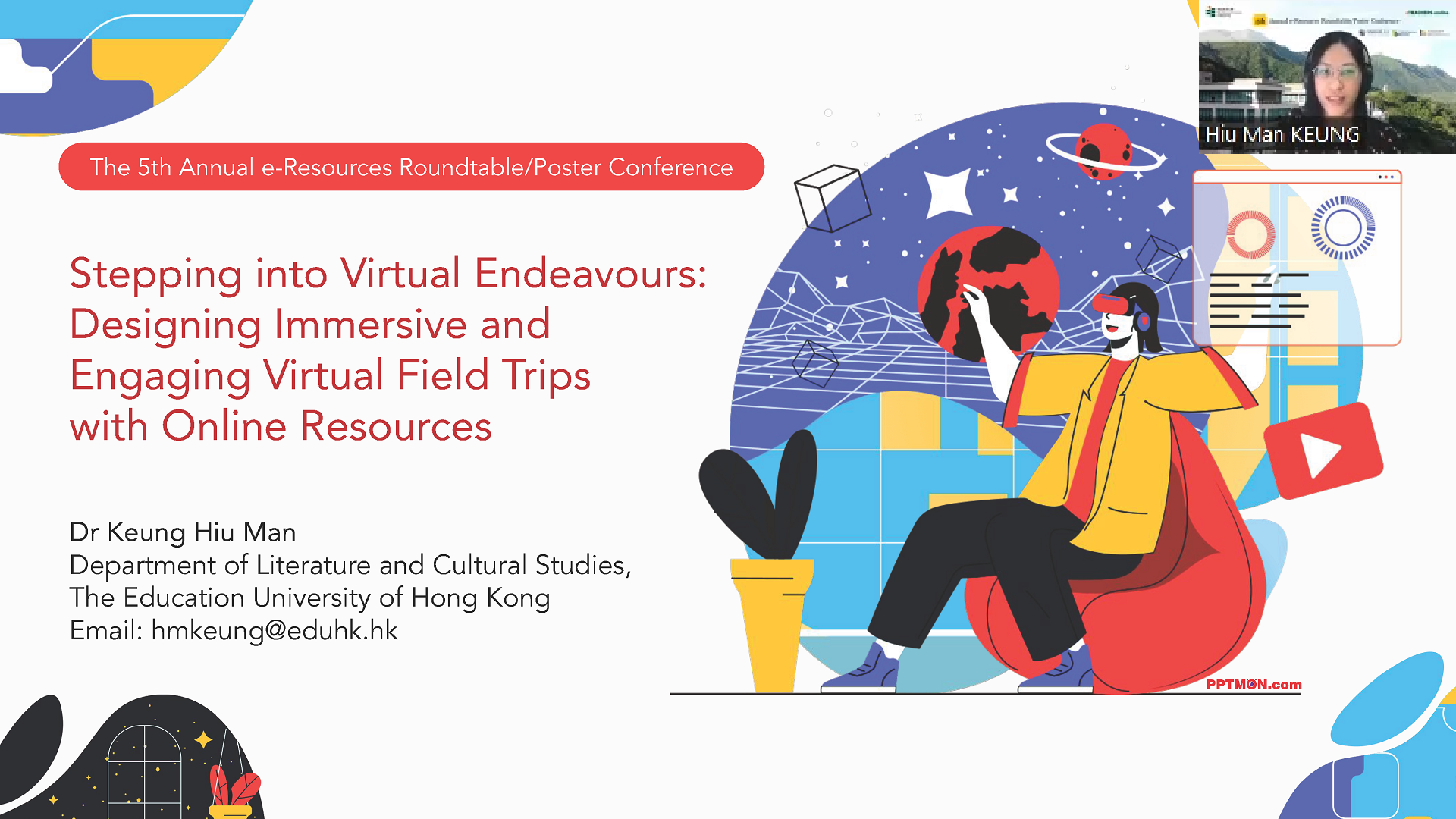Virtual Field Trips (VFTs) guide students to explore the world without leaving the classroom. The growing functions of Virtual Reality (VR) and Augmented Reality (AR) add to the variety of digital sources that can be used in VFTs, and help to create more realistic audio-visual simulations of environments and objects that are costly and time-consuming to reach out in real-life. However, pre-made VFTs hardly match well with different curriculum and levels of studies, while creating such content from scratch requires a lot of time and technical skills.
In this sharing, Dr Keung Hiu Man would first discuss the differences between typical field trips and virtual field trips and then clarify the misconceptions about virtual field trips (VFTs). Later, she would share how she integrated VFTs into her course “Introduction to Chinese Culture” with different online resources. In addition, the sharing would feature the study which aimed to bridge the gap between the pre-made and teacher-made VFTs using resources available online. Implications of the findings would also be highlighted to provide insights into the feasibility and benefits of integrating VFTs into day-to-day lessons in a low-barrier way.
(length: 44:30)
View her presentation slides here: https://drive.google.com/file/d/1lyOOq8RFQrTskVeUmvw80GeAojzNbzMK/view?usp=sharing.
Outline of this Sharing Session:
Stepping into Virtual Endeavours: Designing Immersive and Engaging Virtual Field Trips with Online Resources
Presenter: Dr Keung Hiu Man
00:00 – 01:47 | Introduction | |
Part 1: Background information | 01:48 – 04:19 | Typical field trips – pros and cons |
04:20 – 17:13 | Virtual field trips – myths and facts | |
17:14 – 19:16 | Common problems of VFTs | |
19:17 – 20:40 | e-Resources for creating VFTs | |
20:41 – 22:01 | Issues of using the e-resources | |
Part 2: Study on VFTs | 22:02 – 22:45 | Research objectives |
22:46 – 23:29 | Research questions | |
Part 3: Experience sharing | 23:30 – 24:39 | “Introduction to Chinese Culture” – problems and challenges |
24:40 – 25:37 | Integration of different online resources into the course | |
25:38 – 28:24 | VFT activity 1 – VR 360 video and Padlet | |
28:25 – 30:22 | VFT activity 2 – VR 360 museum tour and Zoom | |
30:23 – 31:30 | VFT activity 3 – AR paintings and Flipgrid (now Flip) | |
31:31 – 32:39 | VFT activity 4 – 3D models and Zoom | |
32:40 – 34:00 | VFT activity 5 – 2D photos and Padlet | |
34:01 – 34:28 | Examples of sharing news report videos on VR innovations | |
Part 4: Study on VFTs | 34:29 – 36:10 | Analysis of the survey data |
36:11 – 38:05 | Students’ feedback on VFTs | |
38:06 – 39:15 | Final remarks | |
Q&A | 39:16 – 41:52 | How can teachers help students make VR 360 videos? |
41:53 – 44:13 | How can we find VR 360 videos online? | |
44:14 – 44:30 | Closing and thanks |
For more details about virtual field trips, please visit her poster page here: https://humbol.eduhk.hk/posters/keunghiuman/.
For more talks and topics, here is the full list of links to both Parallel Sessions: https://humbol.eduhk.hk/category/conference/.



monkey mart unblocked?
Vibración de motor
¡Vendemos máquinas para balanceo!
Producimos nosotros mismos, elaborando en tres naciones simultáneamente: Portugal, Argentina y España.
✨Ofrecemos equipos altamente calificados y al ser fabricantes y no intermediarios, nuestro precio es inferior al de nuestros competidores.
Realizamos envíos a todo el mundo en cualquier lugar del planeta, consulte los detalles técnicos en nuestra plataforma digital.
El equipo de equilibrio es portátil, ligero, lo que le permite equilibrar cualquier rotor en diversos entornos laborales.
analizador de vibrasiones
Equilibrado dinámico portátil:
Reparación ágil sin desensamblar
Imagina esto: tu rotor comienza a vibrar, y cada minuto de inactividad cuesta dinero. ¿Desmontar la máquina y esperar días por un taller? Ni pensarlo. Con un equipo de equilibrado portátil, resuelves sobre el terreno en horas, sin mover la maquinaria.
¿Por qué un equilibrador móvil es como un “paquete esencial” para máquinas rotativas?
Fácil de transportar y altamente funcional, este dispositivo es una pieza clave en el arsenal del ingeniero. Con un poco de práctica, puedes:
✅ Evitar fallos secundarios por vibraciones excesivas.
✅ Minimizar tiempos muertos y mantener la operación.
✅ Trabajar en lugares remotos, desde plataformas petroleras hasta plantas eólicas.
¿Cuándo es ideal el equilibrado rápido?
Siempre que puedas:
– Contar con visibilidad al sistema giratorio.
– Ubicar dispositivos de medición sin inconvenientes.
– Modificar la distribución de masa (agregar o quitar contrapesos).
Casos típicos donde conviene usarlo:
La máquina presenta anomalías auditivas o cinéticas.
No hay tiempo para desmontajes (producción crítica).
El equipo es difícil de parar o caro de inmovilizar.
Trabajas en campo abierto o lugares sin talleres cercanos.
Ventajas clave vs. llamar a un técnico
| Equipo portátil | Servicio externo |
|—————-|——————|
| ✔ Rápida intervención (sin demoras) | ❌ Retrasos por programación y transporte |
| ✔ Monitoreo preventivo (evitas fallas mayores) | ❌ Solo se recurre ante fallos graves |
| ✔ Reducción de costos operativos con uso continuo | ❌ Gastos periódicos por externalización |
¿Qué máquinas se pueden equilibrar?
Cualquier sistema rotativo, como:
– Turbinas de vapor/gas
– Motores industriales
– Ventiladores de alta potencia
– Molinos y trituradoras
– Hélices navales
– Bombas centrífugas
Requisito clave: acceso suficiente para medir y corregir el balance.
Tecnología que simplifica el proceso
Los equipos modernos incluyen:
Aplicaciones didácticas (para usuarios nuevos o técnicos en formación).
Análisis en tiempo real (gráficos claros de vibraciones).
Autonomía prolongada (ideales para trabajo en campo).
Ejemplo práctico:
Un molino en una mina empezó a generar riesgos estructurales. Con un equipo portátil, el técnico identificó el problema en menos de media hora. Lo corrigió añadiendo contrapesos y evitó una parada de 3 días.
¿Por qué esta versión es más efectiva?
– Estructura más dinámica: Listas, tablas y negritas mejoran la legibilidad.
– Enfoque práctico: Incluye casos ilustrativos y contrastes útiles.
– Lenguaje persuasivo: Frases como “herramienta estratégica” o “evitas fallas mayores” refuerzan el valor del servicio.
– Detalles técnicos útiles: Se especifican requisitos y tecnologías modernas.
¿Necesitas ajustar el tono (más comercial) o añadir keywords específicas? ¡Aquí estoy para ayudarte! ️